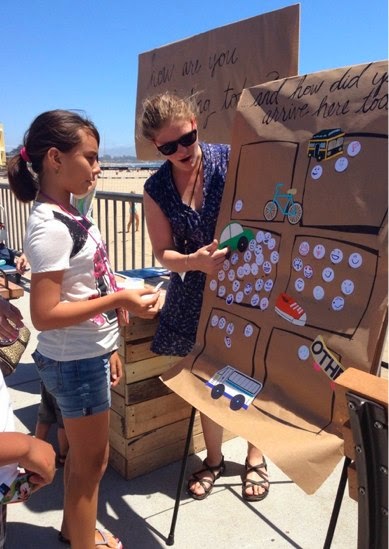When I was kid, many summers would find me at camp. Invariably camp was fun, challenging (new things, new people, different rules…), and always a learning experience. What if today’s “professional development” experience was like camp?
MuseumCamp 2014
Nina Simon is Executive Director of the Santa Cruz (California) Museum of Art & History. Through her Museum 2.0 blog, I’ve come to appreciate her participatory verve and insights. Take her recent (July 30- Aug 2) MuseumCamp 2014 – where else would a professional development team activity use “the passing of joints as an indicator of tribal affinity, at a Grateful Dead tribute concert”?“
MuseumCamp 2014 Confessional Tent from Santa Cruz MAH on Vimeo.
What: MuseumCamp 2014 was “a three-day event at which participants work in teams to develop creative techniques for measuring the social impact of non-profit organizations and activities…”
Who: “100 creative people from diverse arts, social justice, and community development organizations who want to experiment and push their practice through an active, collaborative professional development experience…” Attendees were chosen based on an application process.
Why: “To ignite unexpected collaborations, increase research literacy, encourage outcome-oriented thinking, strengthen organizational effectiveness, and support experimental thinking and prototyping… “
“20 teams had 48 hours to develop, execute, and analyze social outcome research projects at 20 locations throughout Santa Cruz. They explored creative, speculative, and downright ridiculous methodologies to gain insight on how we might use artistic thinking to measure the immeasurable in our work….“The teams delivered. You can check out all twenty research projects here.”
“While all the projects are fast, messy, and incomplete, each is like a small test tube of ideas and possibilities for opening up the way we do social impact research.”
The Camp approach to professional development
I also liked how MuseumCamp 2014:
- happened through a collaborative partnership with Fractured Atlas (helping artists succeed as entrepreneurs)
- time boxed each project; from beginning to final posting of analysis, on the web
- used tag team facilitation; co-creation is a value creation opportunity
- made it safe to fail; focusing on the process, not outcome, like a (golf) champion
- normalized the process; e.g., dips in momentum, “hitting the wall”
- hybrid structure; instructions, worksheets ahead of time… readily accessible online
It seems one challenge not fully met (according to Simon) was connecting the community (attendees) to more of itself; a challenge well known to many conference and community organizers, and organizations in general; e.g., “who else among us knows about this?”
Read more
MuseumCamp 2014 Resources and Reflections; including reflections by Simon, James Heaton of the Tronvig Group and Katharine Gressel (thanks for the Camp as Professional Development format of the future idea).
Bottom line
I’m sold on Camp. And others are, too. Social Media Camp has been successfully running in my town for years.
If maintaining some “essence” of your youth is a life and relationship advantage, (says Daniel Siegel in his book, Brainstorm), let’s do more of it. MuseumCamp, Sharon Sutherland’s Game Sharon Sutherland’s Game Jam for Collaborative Professionals, and other emergent, participatory, experiences like those, speak to the most creative formats for professional development.
Over to you – what’s been your favourite professional development camp-like experience, so far?


Speak Your Mind